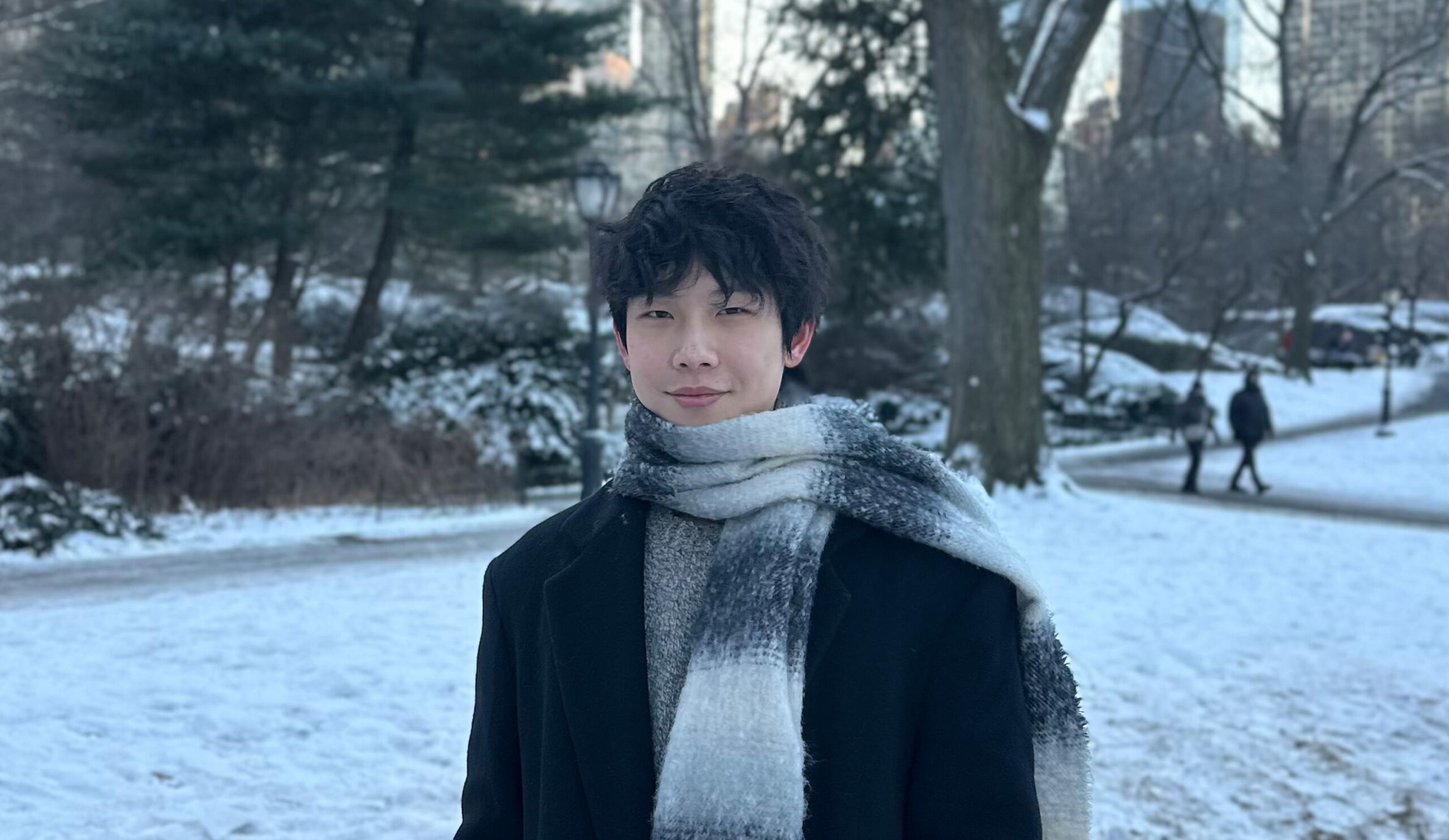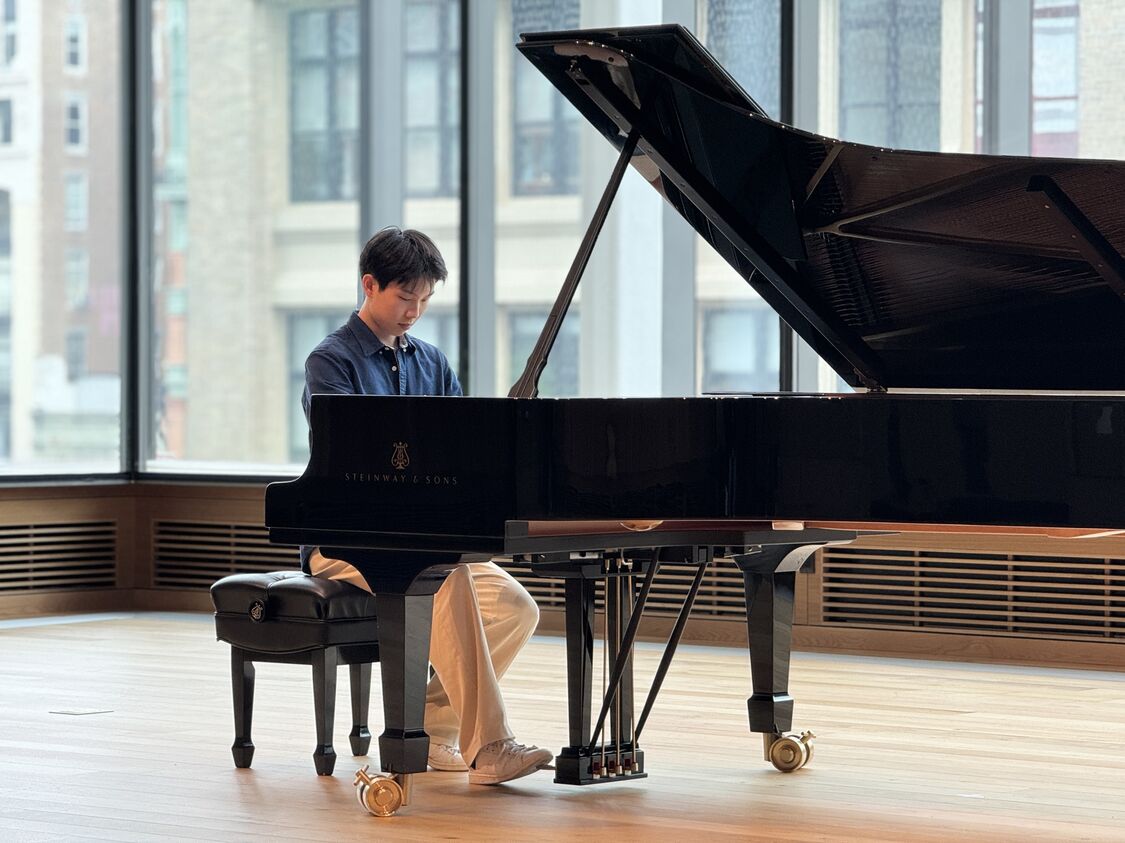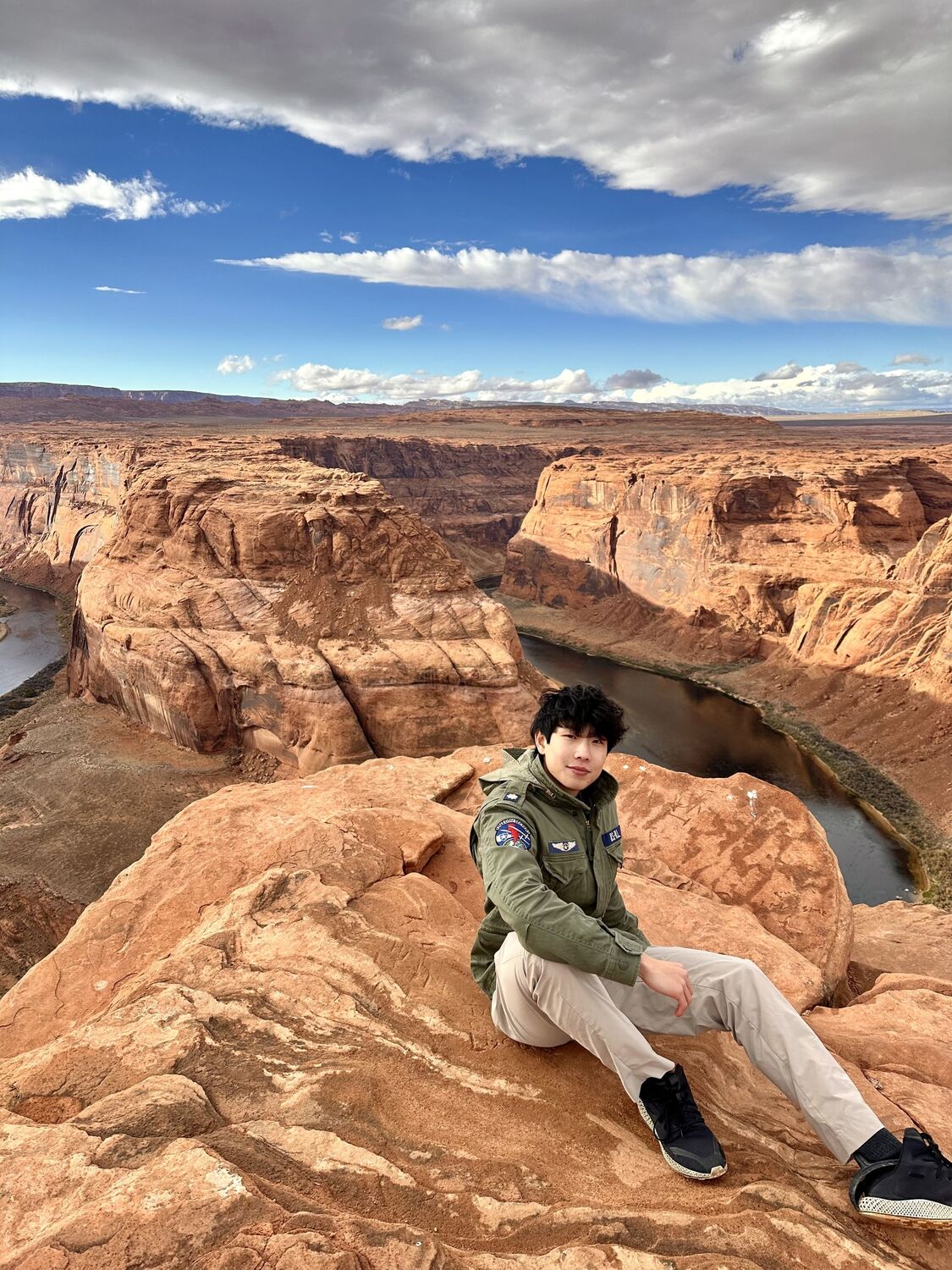16 October 2024
1. Where are you studying?
New York University (NYU)
2. What degree are you studying?
Bachelor of Arts with an Economics and Philosophy double major, joint minor in Computer Science and Mathematics, minor in German.
3. How did you decide that you wanted to study in New York?
I chose to do the IB curriculum with the intent of potentially going to universities overseas. During Year 11, I went on a family trip to the United States and visited New York for the first time. I really enjoyed the city, especially because there was so many things to explore here, from art to music to practically anything you can think of. ItŌĆÖs such a vibrant city and for the subject I wanted to pursue at university (Economics), there was no better place to do it than in New York, given the job opportunities and prospects for growth in the city. These were the reasons that pushed me to apply for NYU.
4. What are you learning about yourself?
Studying at NYU and living in New York has taught me a lot about independence, adaptability, and resilience. Living in a huge city so far away from home and family, in a crowded, chaotic, and potentially dangerous environment, can be a daunting experience at the beginning. For many people, it can be contrary to the ideal vision they had in mind about New York. I know another Australian student from Sydney who came to NYU and dropped out after the first two weeks of living in New York because she found it really difficult to adapt to the lifestyle and pace here. For me, the city also seemed overwhelming at first but it also motivated me to develop my own way of life and explore opportunities here that I might not have envisioned before. It has taught me to be resilient and to find ways to thrive in a new and challenging environment.
5. What skills are you developing?
Time management has become really essential as I balance coursework, part-time internships and social activities while living here. Networking is another key skill I've developed, as connecting with professors, peers, and professionals in New York opens up numerous opportunities. Problem solving has been a constant part of my life here, whether it's figuring out the logistics of living in a big city or tackling challenging academic projects. Additionally, my communication skills have significantly improved interacting with diverse groups of people from all over the world, leading and participating in student clubs, and constant practice in both university settings and everyday interactions, professionally and otherwise, around the city.
6. Are you lonely or homesick?
For sure, from time to time. ItŌĆÖs near impossible not to when youŌĆÖre so far from home and everything familiar. There are definitely ways to help though. Staying connected with friends and families through regular calls and messages helps a lot. Building your own support network by making new friends here in the city has also been crucial in overcoming feelings of isolation. Joining student groups and participating in campus activities is another great way to regain a sense of ╬▐┬ļ┴„│÷AV and belonging. Overall I feel that the NYU ╬▐┬ļ┴„│÷AV has been very welcoming and warm to its international student groups, making the transition to living here very easy and enjoyable.
7. Any advice for the Senior School students at ╬▐┬ļ┴„│÷AV?
If you are interested in applying to overseas universities, the best advice I would give is to plan early. Make sure you find out online about any extra tests you have to take (e.g. SAT or ACT for US college applications) or related application materials you have to fulfil earlier on in the application cycle. For Senior School students who are interested in applying to US colleges in particular, IŌĆÖd also recommend speaking with the academic advisor(s) in charge of your curriculum (for me it was Mrs Walldorf-Davis, who is the Head of IB) and let them know about your plan as soon as you have decided. They will be crucial in assisting you with sending academic transcripts and even writing a letter of recommendation for these applications. Also make sure to research the overseas universities that you would like to apply to in depth and figure out which one suits your goals and future plans the best. Sometimes the 'name' and 'prestige' of a university isnŌĆÖt everythingŌĆöyou have to figure out whether your personality, interests (academic and general), or desired career plan is a good fit with the university you are applying for, along with its geographic location.
8. What is my favourite ╬▐┬ļ┴„│÷AV memory?
The school camps would probably be my number one ╬▐┬ļ┴„│÷AV memory, especially the Year 10 one where I kayaked with my fellow Smithies throughout one entire week. Overall the camps have been a great bonding experience and, even after graduating from university, I still think that no extracurricular activity could triumph the memories I formed from these camps. Likewise, I think the ╬▐┬ļ┴„│÷AV German Trip I did back in Year 9 was phenomenal. I made some of my best friends from ╬▐┬ļ┴„│÷AV during this and the experience gained here also prompted me to continue learning German in Years 11 and 12, and at NYU. I would also say that doing the IB at ╬▐┬ļ┴„│÷AV was a fantastic experience. Despite the challenges it presented to me, the IB curriculum set a great foundation for my learning beyond high school, and I would still say that some of the most difficult assignments IŌĆÖve done so far come from IB, and not university. The academic expertise I gained from completing the IB program allowed me to excel in certain areas of my university learning, and for this IŌĆÖm forever grateful to ╬▐┬ļ┴„│÷AV and itŌĆÖs wonderful teachers for making this program a totally worthwhile learning journey.
Chris Tang (2019)
Old scholar





